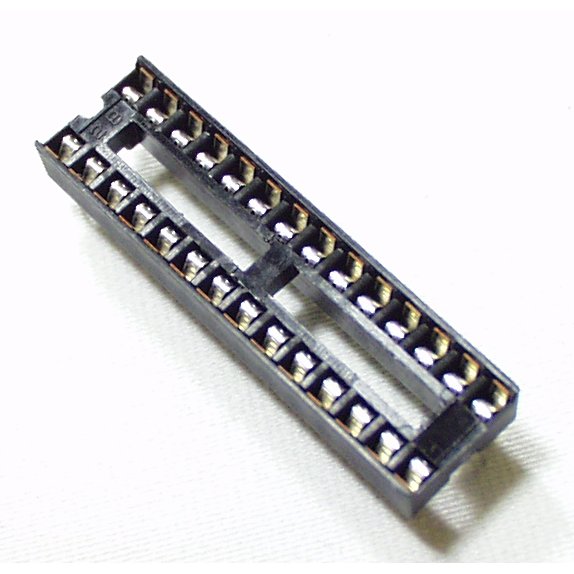DIP Sockets Solder Tail - 28-Pin 0.3"
Dip sockets for all your prototyping needs. If you've ever had to de-solder a dip part from a circuit board, you know how valuable these are! Number of pins include: 8, 14, 16, 18, 28, and 40.
This is a 300mil wide 28-pin socket.
DIP Sockets Solder Tail - 28-Pin 0.3" Product Help and Resources
Core Skill: Soldering
This skill defines how difficult the soldering is on a particular product. It might be a couple simple solder joints, or require special reflow tools.
Skill Level: Rookie - The number of pins increases, and you will have to determine polarity of components and some of the components might be a bit trickier or close together. You might need solder wick or flux.
See all skill levels
Comments
Looking for answers to technical questions?
We welcome your comments and suggestions below. However, if you are looking for solutions to technical questions please see our Technical Assistance page.
Customer Reviews
No reviews yet.


Atmel chips are slightly wider than these, but if you sit the chip on a bit of an angle its fine. Just takes up an extra 3-5mm of vertical space.
Push harder. Atmel328 fits just fine, but it is a tight fit. You're not going to get the chip out without chip pullers... You won't want to pull the chip out of the socket unless you have to replace it (not just to reprogram it).
why is there no 20 pin variant other than the much more expensive wire wrap sockets???!
These are pretty economical sockets. If you have to desolder one, it will be trash afterwords. But they serve their function.
Does anyone know if legs of this socket are bendable by 90 degrees? I want place it to "paper circuit" and every trough hole is problem...
Nevermind, legs are pretty easily bendable.